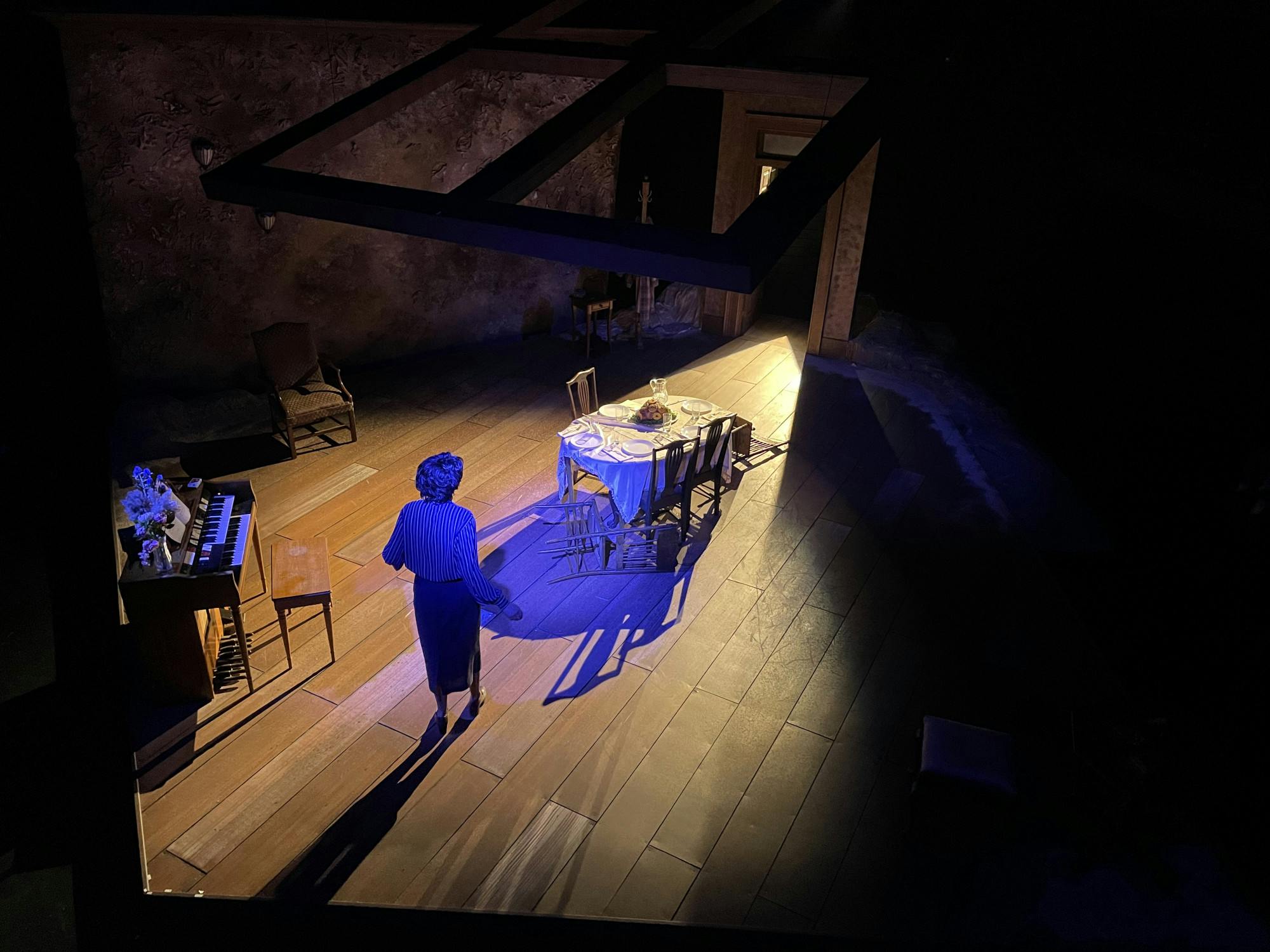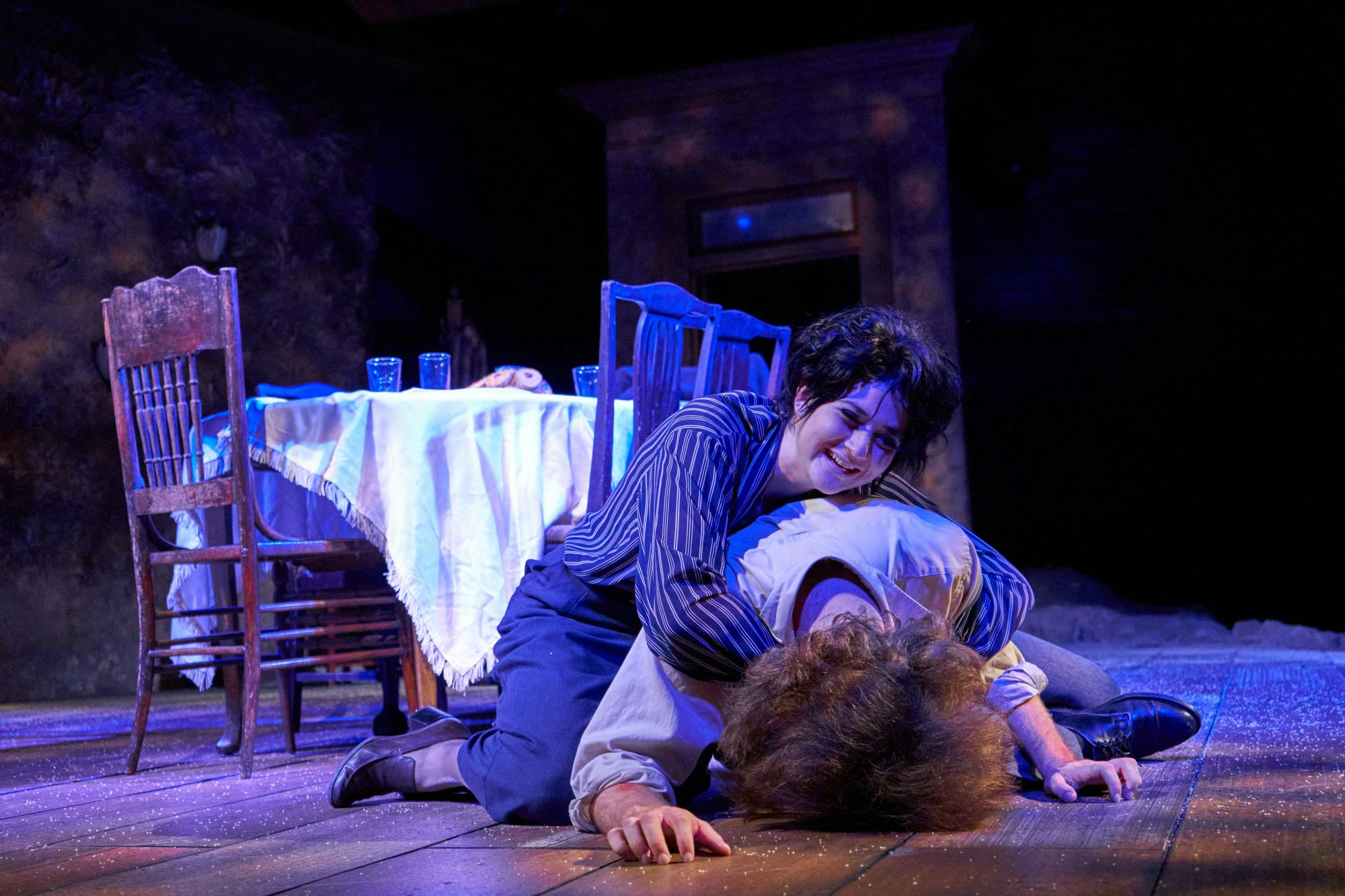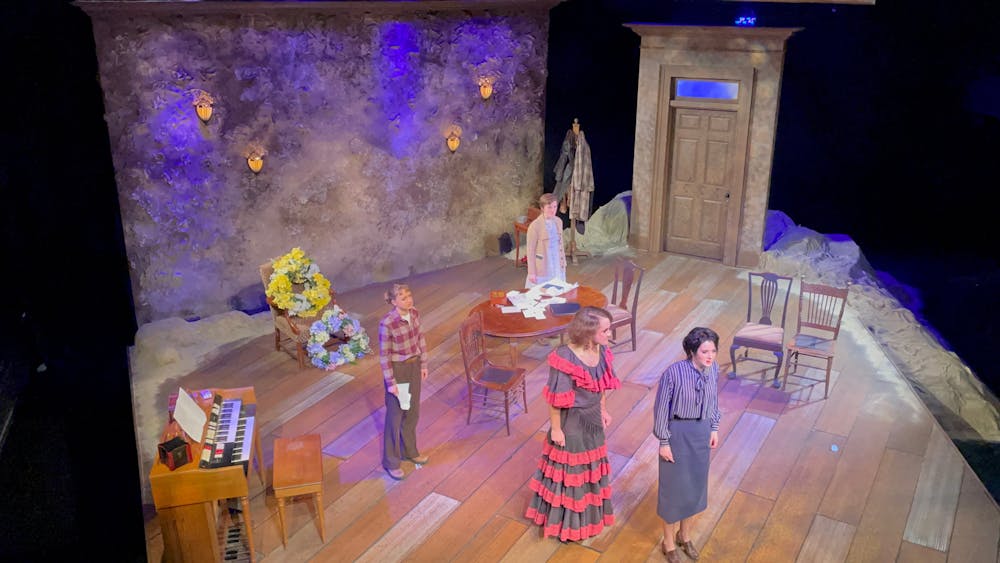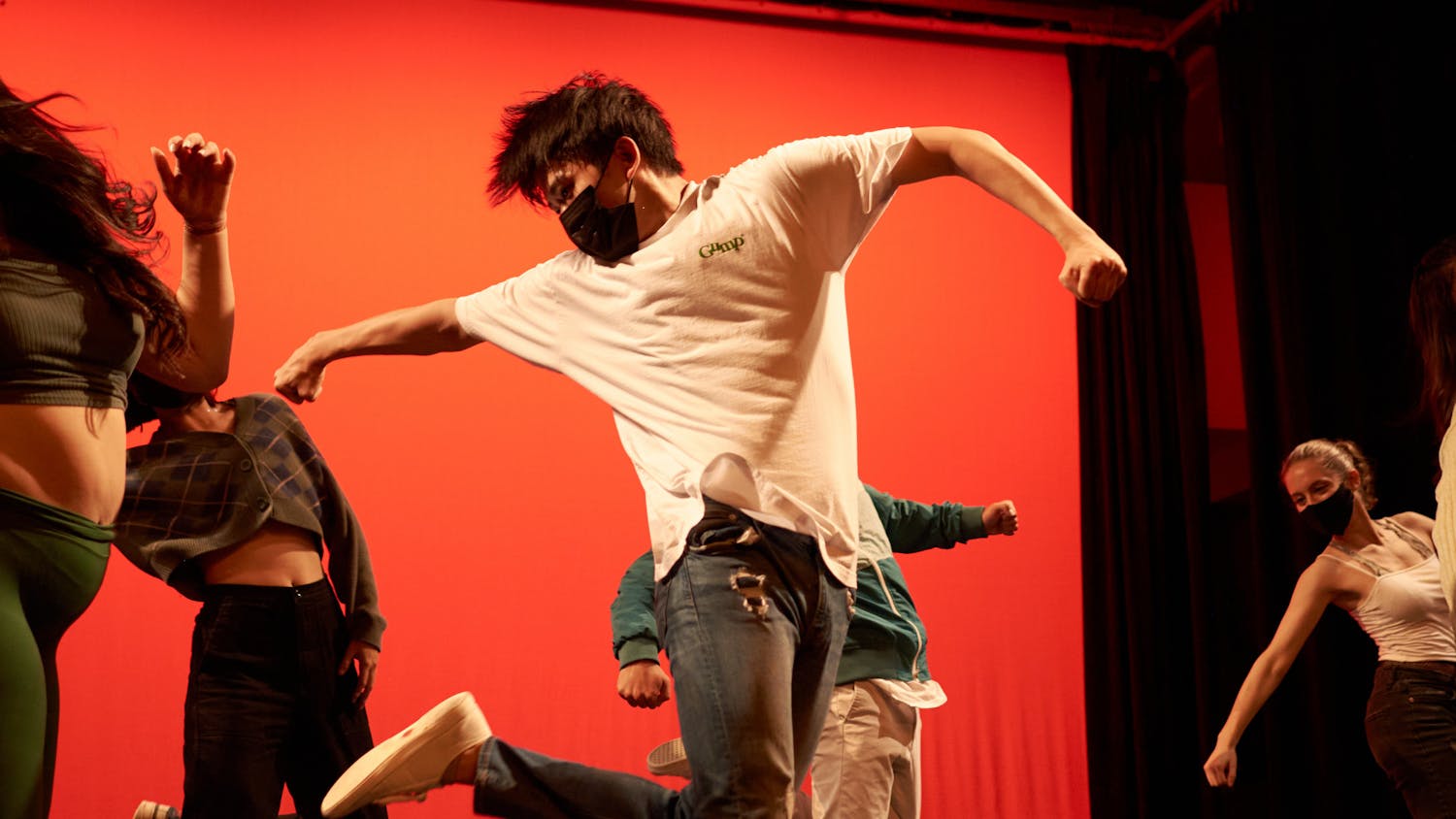Brought to life by the Middlebury College Department of Theatre, “The Orphan Muses” touches on themes of abandonment, oppression and liberation within the comedic framework of the wacky, dysfunctional Tanguay family.
Written by the Canadian playwright Michel Marc Bouchard in 1989, this play tells the story of four vastly different siblings unexpectedly reuniting the day before Easter Sunday.
Each of the four siblings has attempted to deal with the trauma of their mother’s abandonment 20 years ago in different ways that often create interpersonal conflict with the family.
Catherine (Becca Berlind ’21.5), the eldest sibling, assumes the role of the uptight matriarchal figure that was vacated by their mother. She desperately tries to control the family’s financial affairs and promote stability, especially related to the actions of the youngest sibling, Isabelle (Madison Middleton ’22.5). Isabelle is forced to be dependent on her sister’s support but continuously wishes to pursue her own path outside of their home.

Meanwhile, middle siblings Luc (Jacob Raymond ’23) and Martine (Masha Makutonina ’21.5) have left the region, but with very different intentions. Luc travels around Spain, in an attempt to find their mother, while Martine enlists and becomes a military officer in Germany.
When they reunite, the three elder Tanguay siblings are forced to confront the lie they told the youngest sister, Isabelle, that their mother had died — which they had conceived to spare her from the truth of their mother’s actual abandonment. However, the siblings discover that Isabelle has been secretly executing a plan to force her siblings to confront their own failings.
The selection of this play for the Department of Theatre’s fall 2021 season was intensely personal. During his decision process, Director and Professor of Theatre Claudio Medeiros specifically chose Bouchard’s play due to both his connection to its poignant themes and its relevance in his life.
“I realized that [“The Orphan Muses”] had a deeper meaning for me because I lost both my parents recently. I had a very close and beautiful relationship with my mother,” Medieros said. “This play is not that story — it is about four siblings who are orphaned. It’s all about surviving the trauma of being abandoned by their mother — which is not my story — but the mother is so central to [“The Orphan Muses”] and I’m a recent orphan… so I thought ‘wow, I’m doing a play with an absent mother.’”
“The Orphan Muses” is ultimately a story that highlights how each sibling must reconcile their individual experiences and shortcomings with a desire to liberate themselves from this perpetual state of family dysfunction, personal alienation and collective grief. Martine and Luc’s lives function around the precept that their queer identities must conform to norms of heterosexuality. Catherine, on the other hand, desperately seeks to fulfill her desire for female maternity that arose in the wake of her mother’s departure by strictly parenting Isabelle. She also struggles financially, having to work two jobs to sustain Luc’s fantasies. Not only does Isabelle live under Catherine’s high standards, she is ridiculed for having a disability that, in reality, does not impede her, but fortifies her complexity as a character that is neurodivergent.
“The play is about liberation from trauma, both individually and collectively,” Middleton said. “The great gift that Bouchard gives the actor playing Isabelle is that he does not diagnose her with anything. [The character of Isabelle] is all based on what people say about her and what she says about herself.”
Berlind affirmed how all the characters in this play, especially Catherine, seem domineering at times, but their attitude functions as a survival mechanism for life in an unjust world.
“It is at first really easy to see these characters as really ugly and really vicious, but, as the play unfolds, you can see more and more […] that they’re just hurting,” Berlind said. “This viciousness, this ugliness, is because they’re hurting. They’re hurting each other. They’re hurting themselves. They’re hurting under systems of oppression.”

At the same time, “The Orphan Muses” is often funny because of how it skillfully highlights the dynamism of a dysfunctional family. Audience members found themselves laughing at the actors’ comedic timing as they cracked sarcastic jokes about their own misfortunes.
As a tragicomedy, this juxtaposition of humor with heavy themes catches and sustains the attention of the audience.
“It’s an expressionist style of acting, it’s not total realism. There’s almost an element of slapstick or big physical comedy,” Berlind said.
With all of its complexities, “The Orphan Muses” seeks to present profound, yet universal themes that speak to everyone.
“To take down the walls of exclusivity and gatekeeping... there has to be a sense of we’re doing this [theatre] for the community, not just for academia,” Middleton said. “With “Orphan Muses,” what I find exciting is that we are telling the story of four different people and an audience member can go ‘Oh my God, I get that’ at different moments for each person.”
“The Orphan Muses” thoughtfully provokes deep questions on how liberty from our personal struggles can be achieved.
Editor's note: A version of this article incorrectly spelled the names of Masha Makutonina ’21.5 and director Claudio Medeiros. These errors have since been corrected.




